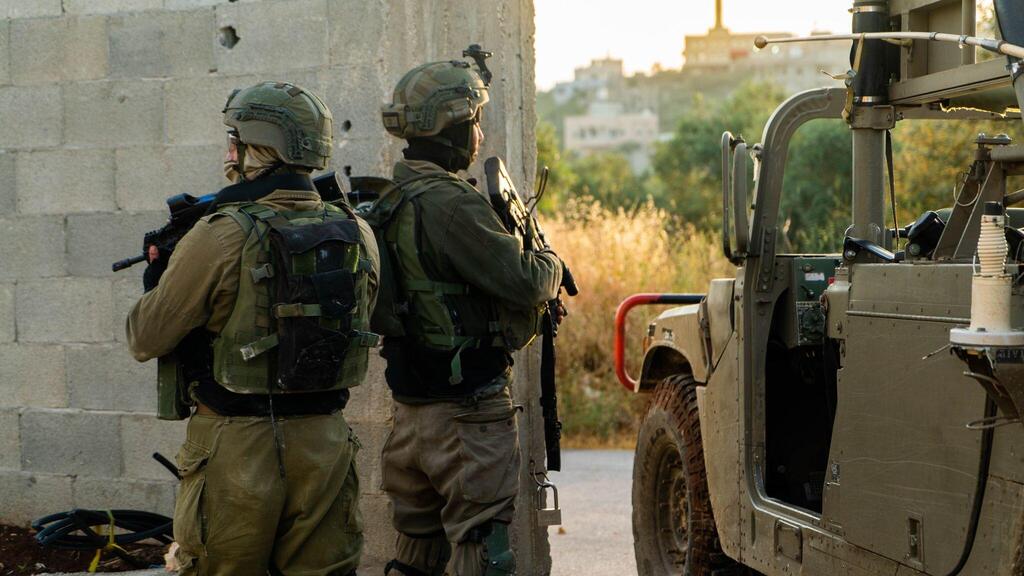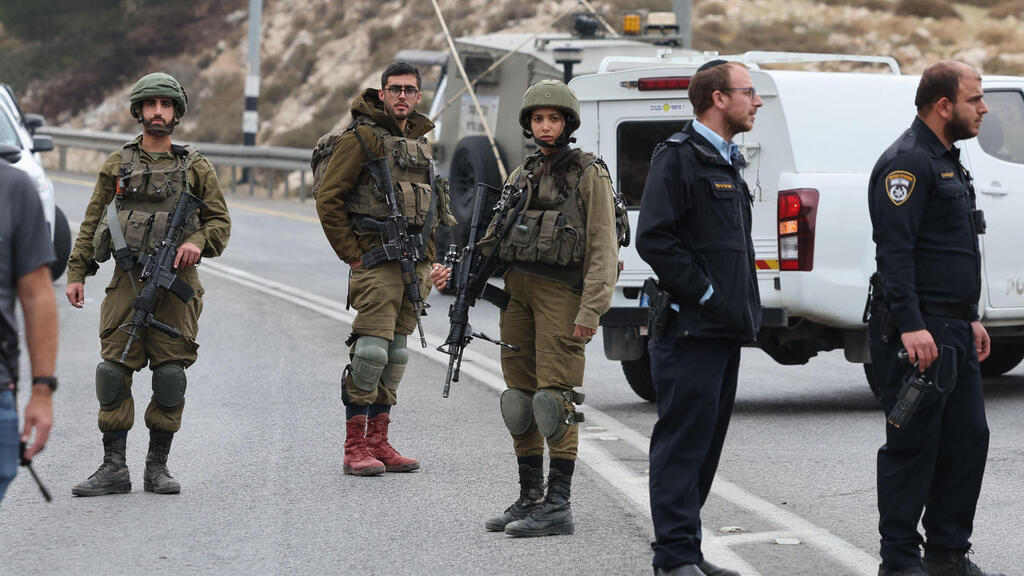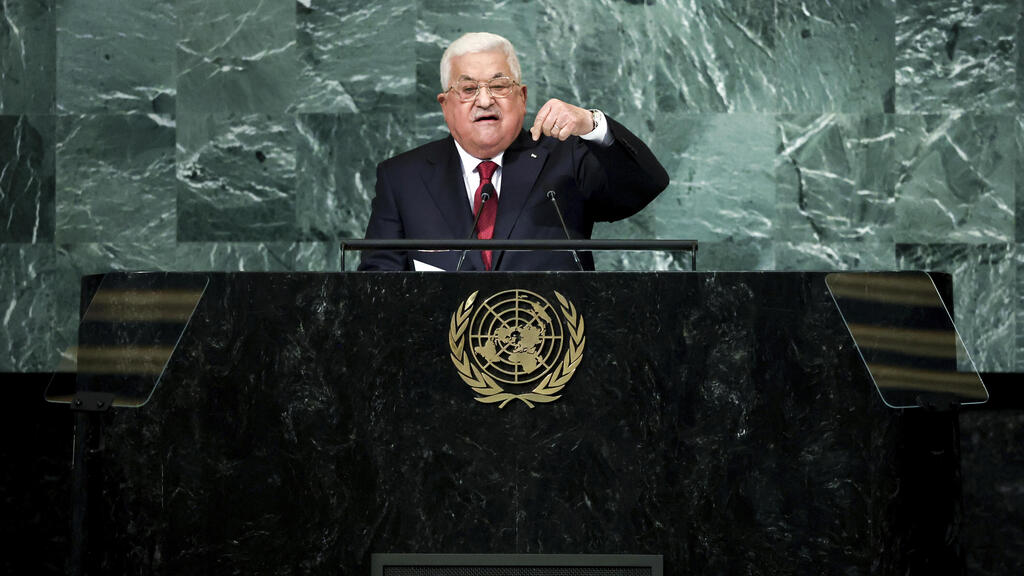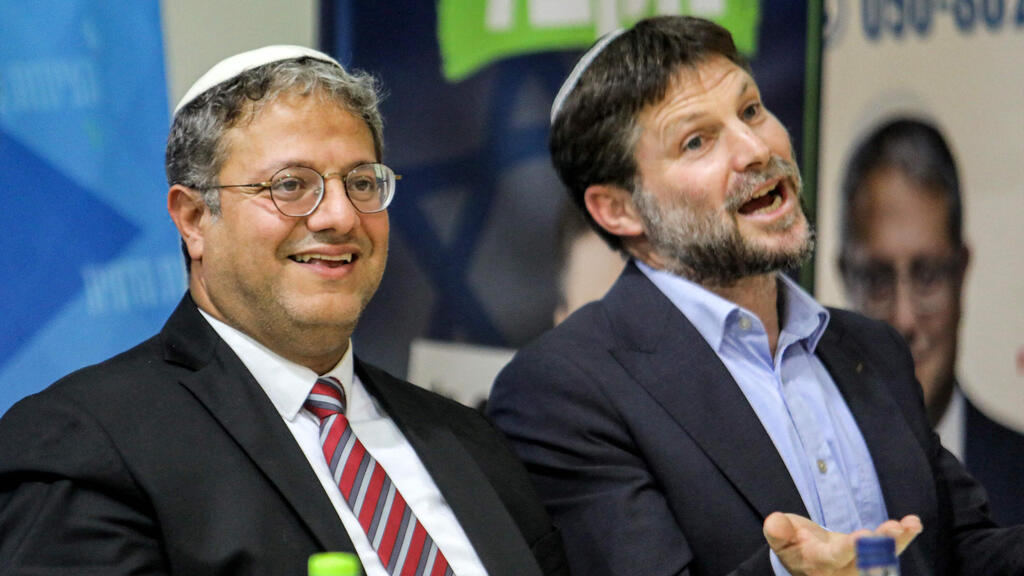An official working in Israel’s Security forces said that the need for constant IDF presence in the West Bank is harming the military's readiness for other conflicts.
“A significant part of the IDF’s standing army is deployed to the West Bank to maintain security,” The official said. “Soldiers are stationed there instead of being trained.”
“This directly harms the IDF readiness for war, in Lebanon and otherwise," the official said. "If an escalation leads to war on numerous fronts, we may enter it unprepared, as we were in the Second Lebanon War in 2006.”
This prediction was repeated by more than one official involved with the IDF, who have knowledge of its readiness for large-scale engagement.
The numbers speak for themselves. At the end of 2021, 13 battalions took up positions in the West Bank, with most of them belonging to the standing army and some including reserves. In 2022, 25 battalions were positioned in the West Bank, alongside units of IDF special forces and Border Police.
Before the need to assign large forces to that region, the IDF managed a division of 17 weeks of training and 17 weeks of operational duty, and this ratio is now disrupted.
This means that the IDF’s standing army has very little time to train, this is also true for the 66 reserve battalions the IDF plans to conscript in 2023.
This situation does not seem likely to improve. The constant need to provide forces for the West Bank is the result of the ongoing incitement for Palestinian terror attacks, leading to casualties on both sides.
Some call what has been playing out a “mini-Intifada” while others prefer to see it as a terror wave, but the Shin Bet and the IDF believe that this surge in violence is unlike anything Israel has experienced before.
This attacks are no longer the actions of lone wolves or rioting mobs. Recent attacks had required planning and the use of firearms and have spread farther than the Jenin area, where militant groups like the Lion's Den had operated.
Still, the Palestinian public at large has not yet joined the fight despite the fact that over 100 Palestinians have been killed since the start of 2022.
Incitement to violence may be connected to the fight to succeed Palestinian Authority President Mahmoud Abbas, the widespread availability of firearms in Palestinian territories, the frustration of Palestinian youth at their leaders' seeming lack of success, alongside having no economic or political prospects for their future.
No one in Israel can say when this incitement will end or morph into a largescale Intifada, but most agree that it could happen at any moment, which is the reason why the IDF and Shin Bet continue to operate nightly in the West Bank – often incurring confrontations with Palestinians.
Palestinian casualties in these confrontations provide more motivation to carrying out terror attacks – which are quickly uploaded to social media.
The danger of more conflict will likely increase after the World Cup games are over, when Qatari leaders will no longer demand of Hamas and the PA, to keep quiet, in exchange for billions of dollars.
The ongoing coalition negotiations have also had an impact. The Palestinians are familiar with Bezalel Smotrich’s views and are aware that he will be given authority over the West Bank settlements and all civilian matters pertaining to the Palestinian residents. They also know the positions of Itamar Ben-Gvir, who is expected to become Public Security Minister.
The Palestinians, like the Israelis, fail to understand why these two men were given their new positions but are keenly aware of the effects they may have on their lives.
Palestinians are in constant conflict with Border Police forces, mainly in urban areas such as Hebron and Ramallah, and this is why the Palestinian public is becoming increasingly agitated.
But even worse, the political squabbles over authority, could lead to a question of authority over the West Bank. Prime Minister-designate Benjamin Netanyahu’s claim that he will control the government and its policies, is simply unattainable. Netanyahu is talented and a seasoned premier, but there is a limit to his ability to control. This is doubly true while he is still attempting to prove his innocence in court, where he is on trial for corruption.
The power struggles and political disagreements between the different factions and political players, will eventually reach the IDF, Shin Bet, and the police. Those heading these institutions will know how to navigate the politicians, but soldiers in the field will be confused, much like the IDF soldier who assaulted a left-wing activist in Hebron.
The military’s readiness is deteriorating, incitement in the West Bank and Gaza is increasing, and the political struggle is threatening to harm Israel. It seems 2023 will be a true challenge.





